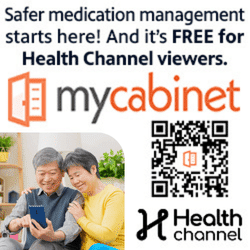Is the COVID-19 pandemic over? |

Last week, the CDC updated its list of who is at highest risk for severe complications associated with COVID-19. In addition, the number of cases in the U.S. has increased dramatically within the past two weeks. Everyone needs to understand that this pandemic is far from over, and we need to act accordingly.
Based on the most recent data available, the U.S. Centers for Disease Control and Prevention has expanded its list of conditions that put people at higher risk for more serious complications from COVID-19. When we understand who is at the highest risk for severe illness or complications, we can make the best decisions of our families and our communities. We were previously told that adults over 65 were at a higher risk for severe complications than adults younger than 65. While this is still true, the latest information indicates that the risk among adults steadily increases with age, and is not limited to those adults 65 or older. In this country, we have seen many severe complications and death associated with COVID-19 in adults younger than 65, including people in their teens and twenties. Even though the risk steadily increases with age, it does not mean that young adults are always going to sail through the infection with no problems. Here is the expanded list of underlying medical conditions that are associated with increased risk of severe complications from COVID-19, independent of age:
- Chronic kidney disease (CKD)
- Chronic obstructive pulmonary disease (COPD)
- Obesity (Body mass index 30 or over)
- People who have a weakened immune system due to solid organ transplants
- Serious heart conditions, including heart failure, cardiomyopathy, or coronary artery disease
- Sickle cell disease
- Type 2 diabetes
The more of these health problems that a person has, the higher their risk. The CDC also updated the list of conditions that might increase the risk of complications. This list includes:
- Asthma
- High blood pressure
- Neurologic conditions such as dementia
- Cerebrovascular disease such as stroke
- Pregnancy – A recent study found that pregnant women with COVID-19 are much more likely to be hospitalized, admitted to the ICU, and to be put on a ventilator than women who are not pregnant, but they are not at higher risk of dying from COVID-19.
With the expanded list above, this means that more people are considered to be at higher risk than we previously thought. About 60% of adults in the U.S. have at least one chronic medical condition, and about 40% of American adults are obese. Everyone needs to understand their risk, and the risk of their family members for severe COVID-19 complications, and needs to make informed decisions accordingly. Those of us who are not at high risk for complications need to place the health of our neighbors and fellow community members ahead of our own desires to get back to “normal”, because we can’t get back to normal until everyone in our community can also get back to normal.Here is how we can all do our part to protect our community:
- Focus on activities where social distancing can be maintained (stay 6 feet apart).
- Wear a face covering that covers both your mouth AND your nose whenever you are in public
- Wash your hands frequently.
- Do not visit your older parents or grandparents until the community spread has declined significantly.
- If you feel concerned that you may have been exposed, you should get tested at your nearest testing center. Contact your family doctor if a doctor’s referral is needed in your area.
If you have any more questions just Ask Hanna, our health advisors are here to help.
Dr. Anita Bennett MD – Health Tip Content Editor








